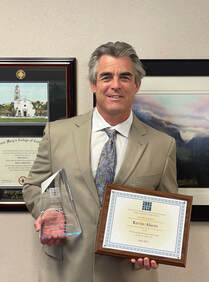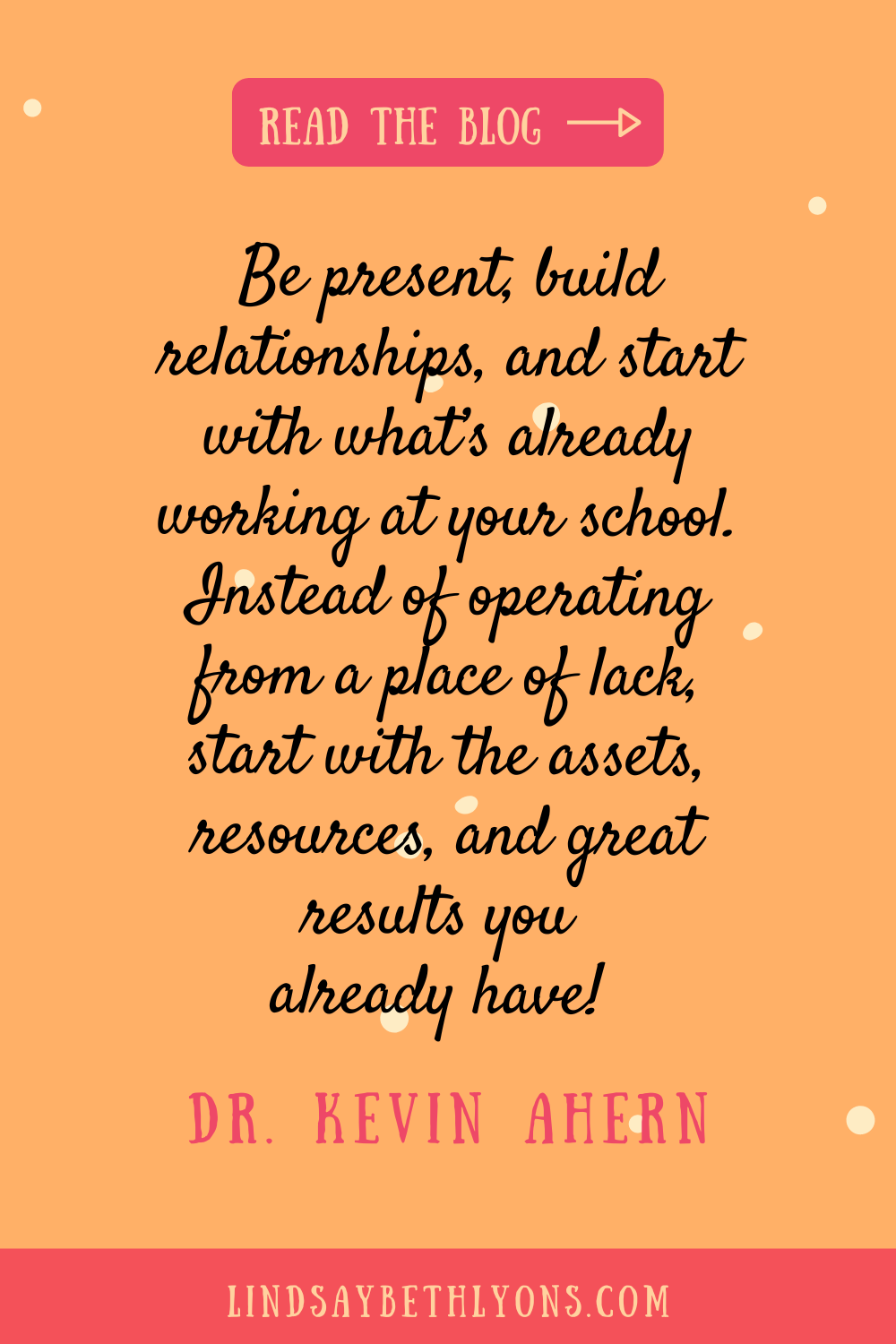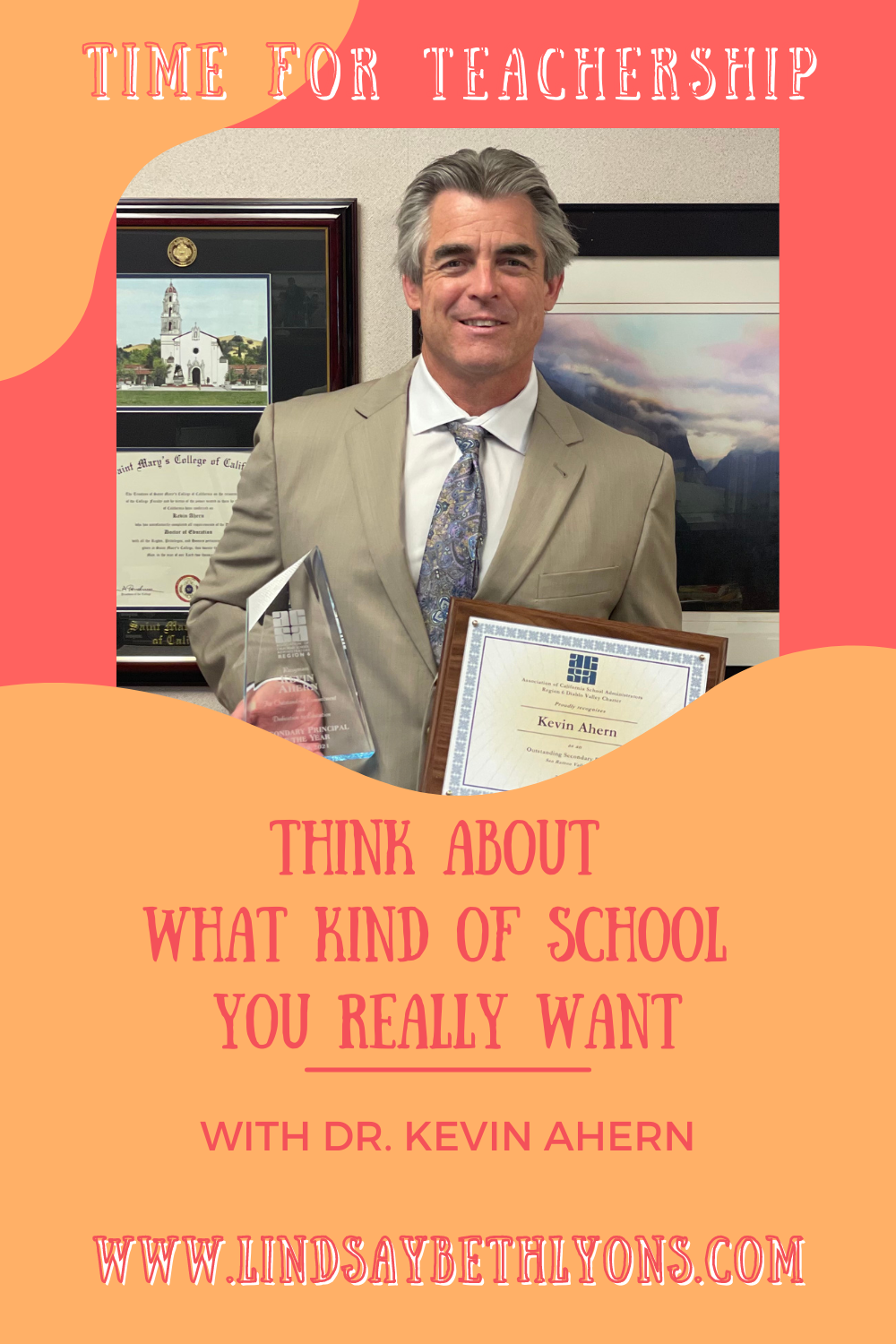 Listen to the episode by clicking the link to your preferred podcast platform below: It’s been said many times that your budget reflects your values—how you prioritize money speaks to what you care about. And this applies on a personal level, but also in an educational setting. But it’s more than just how you spend your money as a school or administrator, but how you spend your time. Dr. Kevin Ahern’s priority as a principal is to invest time into relationships with his colleagues, teachers, students, and parents. That time translates to a deeper understanding of the community, how to build a more equitable educational environment, and evaluating what changes need to be made to maximize the learning experience. To talk more about his leadership philosophy, we invited Dr. Kevin Ahern onto an episode of the Time for Teachership podcast. He had so much wisdom to share, so make sure you catch his episode to hear the full conversation! From Community to Society Dr. Ahern has worked in education for 26 years, half as a teacher and half as an administrator, both in small and large schools. And over his career, he’s developed a big dream for the field of education: that we would focus on the micro, community level to impact change and improve the lives of the students. Then, how can that translate into the broader society? Too often we think about the high-level societal impacts of education or other facets of life. But what Dr. Ahern reminds us of is that as administrators and educators, we’re collaborating with individuals. It’s our responsibility, then, to focus on our immediate community of students and do everything we can to ensure they are empowered and inspired to learn and grow. Mindset Shifts for Growth To achieve this big dream for education, there needs to be a mindset shift. Instead of coming from a place of lack or not being good enough, administrators and educators should start with what we have. What are the assets already in the school? What’s great about this place? And why is it great? From there, administrators can either “keep watering the green grass,”—i.e., keep up the good work in areas that are excelling—or devote extra attention to the places that still need work. For Dr. Ahern, this hinges on collecting feedback from all the school’s stakeholders—students, parents, and teachers. From this, you can learn:
It’s important to always be willing to gather feedback and make those changes. And yet, change can be hard for many people, so it’s wise to approach it slowly and thoughtfully. Take stock of the situation, and then use creative problem-solving to optimize your school. Increasing Equity through Relationships Building an equitable school starts with understanding the operational definition of equity. How does the school administrators and staff define it? For Dr. Ahern, it’s simple. Equity is when every student gets what they need to experience success. And it’s built on relationships with all stakeholders:
Relationships are Dr. Ahern’s priority because he knows how they have the power to transform. Through conversation and open dialogue, the school can be part of the larger community conversations that matter for diversity and equity. Dr. Ahern’s advice to administrators is this: be present, build relationships, and start with what’s already working at your school. Instead of operating from a place of lack, start with the assets, resources, and great results you already have! This positive mindset will help you be open to growth and lead your school well. We talked about so much more in the Time for Teachership podcast, so make sure you go listen to it! If you want to keep up with Dr. Ahern, feel free to connect with him on LinkedIn.
0 Comments
Leave a Reply. |
Details
For transcripts of episodes (and the option to search for terms in transcripts), click here!
Time for Teachership is now a proud member of the...AuthorLindsay Lyons (she/her) is an educational justice coach who works with teachers and school leaders to inspire educational innovation for racial and gender justice, design curricula grounded in student voice, and build capacity for shared leadership. Lindsay taught in NYC public schools, holds a PhD in Leadership and Change, and is the founder of the educational blog and podcast, Time for Teachership. Archives
May 2024
Categories |




 RSS Feed
RSS Feed